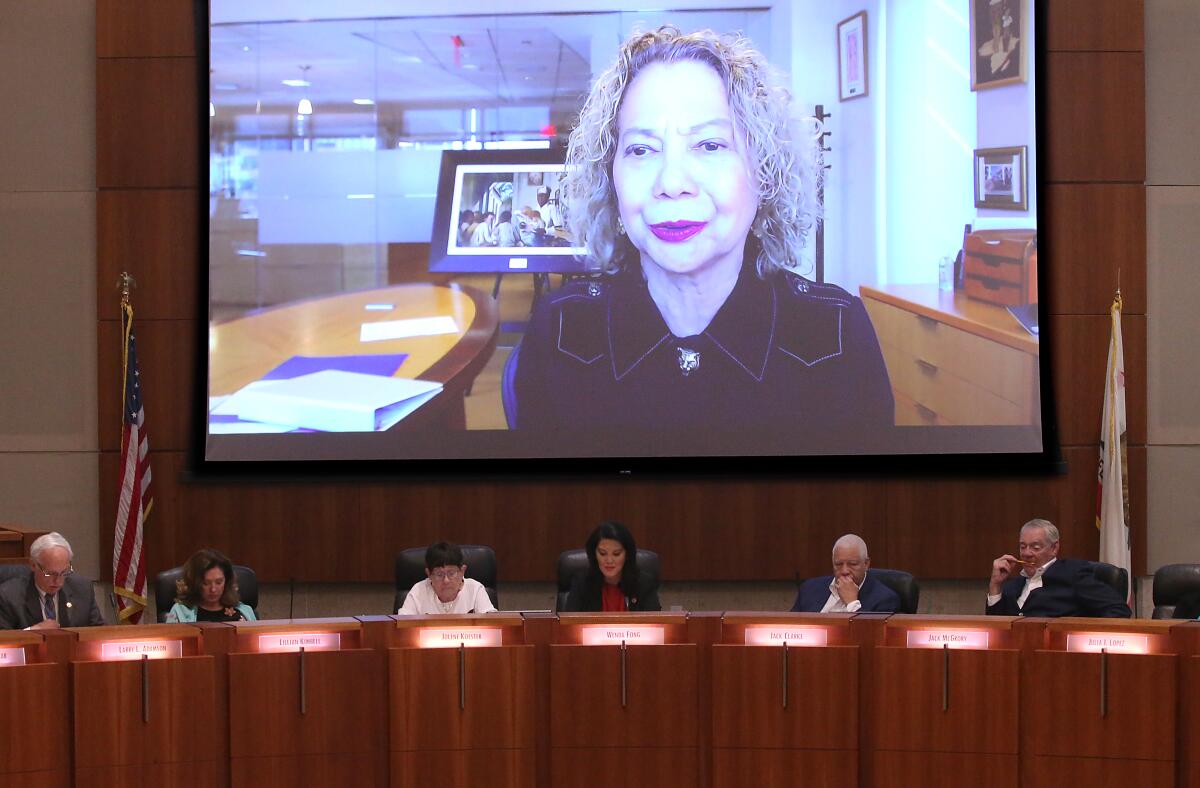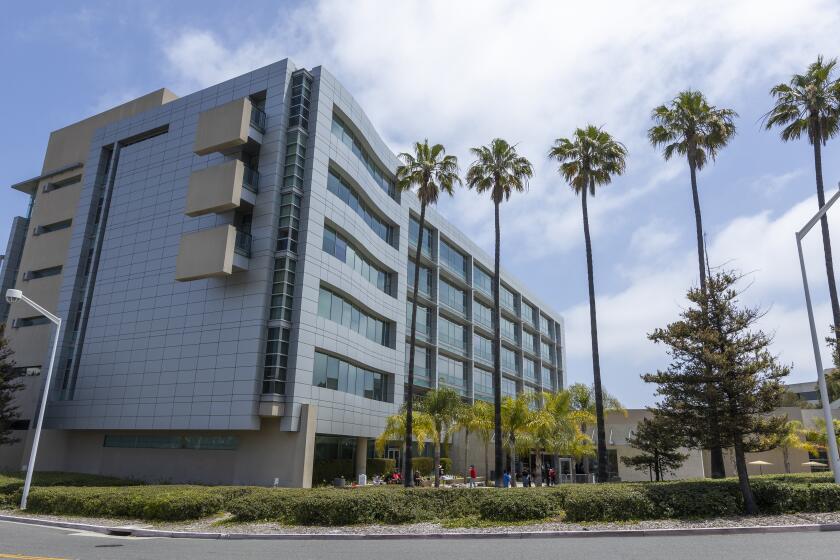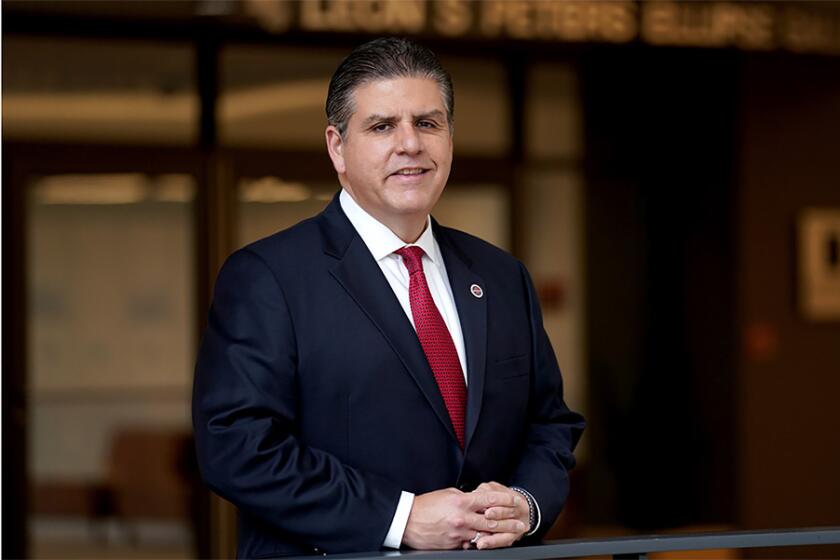Editorial: CSU must overhaul its dysfunctional sexual misconduct complaint system

Incoming California State University Chancellor Mildred García has said she wants to prioritize accountability when she takes over operations of the 23-campus system. Good. She and other top administrative leaders should start by overhauling how they handle sexual misconduct complaints.
Two separate reports released this week paint a grim picture of dysfunction at the nation’s largest public university system, with campus administrators failing to comply with laws that forbid discrimination, harassment and retaliation on the basis of sex, gender and race. The reports — one by a law firm hired by CSU and the other from the state’s auditor — were prompted by allegations that former Chancellor Joseph I. Castro mishandled sexual harassment complaints.
A report found flaws in the Cal State system’s data collection on sexual harassment and sexual misconduct cases and cited wide distrust by students and employees.
The yearlong assessment by the Cozen O’Connor law firm, which specializes in investigating Title IX policies at universities, documented a bevy of problems including a lack of oversight by the chancellor’s office of how each campus handles complaints, insufficient staff to handle complaints and heavy turnover at individual campuses. Investigators found that employees who handle harassment and discrimination complaints at most campuses feel overburdened and are often unable to handle the workload.
For example, a Times analysis of CSU records found that university officials completed investigations in only about 3% of more than 2,600 reports of sexual harassment and sexual misconduct, including rape and sexual assault, filed against students and employees during the 2021-22 school year. Some employees left before they could be investigated and disciplined, the reports say.
From trying to sweep sexual harassment complaints under the rug to giving cushy exits to executives, Cal State must own its mismanagement and revamp its values.
Disturbingly, campuses lack of written policies on whether an investigation is warranted when receiving a report of sexual harassment, the state auditor found. The audit also discovered that the lack of documentation and record-keeping meant repeat offenders were not identified as such, allowing them to continue to re-offend. The state auditor’s report, released Tuesday, largely mirrors the major findings of the Cozen O’Connor report, though its scope was limited to three campuses and the chancellor’s office.
Interim Chancellor Jolene Koester said CSU will implement the recommendations made in both reports. The most important recommendation from both reports is that CSU needs to transform the chancellor’s office from its current advisory role to a more powerful enforcement role overseeing the handling of discrimination and harassment complaints at campus offices. CSU should create a new position of assistant vice chancellor charged with leading the overhaul and monitoring systemwide compliance of civil rights and Title IX regulations, which prohibits sexual and gender discrimination in schools and institutions receiving federal funds.
California State University must investigate allegations that Chancellor Joseph Castro ignored sexual harassment complaints against an administrator.
Additionally, a separate office should provide oversight and accountability, staffed by people with expertise in various aspects of compliance, including investigators who would provide training to all campuses. As well, the chancellor should add staff to the office of general counsel, to deal with the many issues that a major university system routinely handles, which limits efforts to assist individual campuses with legal matters.
Limited funding and staffing are severely hampering efforts to comply with anti-discrimination laws, the reports note. However, these are core functions of any institution, particularly for a large university system charged with ensuring the safety of 460,000 students and 56,000 faculty. Students throughout California and elsewhere rely on CSU for a solid and affordable education. Affordable should not equate to unsafe or substandard campuses.
It was clear that changes were needed when the CSU Board of Trustees last year called for an assessment of how campuses handle sexual and gender discrimination, harassment and retaliation. The findings are now in, along with clear recommendations for how to fix the many problems. The work will be costly, but necessary.
More to Read
A cure for the common opinion
Get thought-provoking perspectives with our weekly newsletter.
You may occasionally receive promotional content from the Los Angeles Times.












